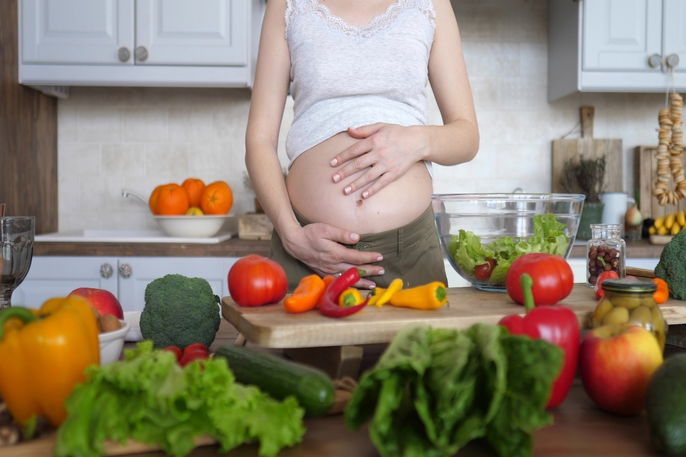A fertility diet is made-up of nutrients that are necessary for optimal egg maturation and for adequate blood flow and oxygen transport to the reproductive organ. Foods like beans lentils, for example, contain vitamin B6 and B12, which can facilitate these processes. Foods with iron and folic acid, like beans and leafy greens, can also help to boost fertility in women.
In men, a healthy and balanced diet is equally important. Selenium, for example, is related to the sperm and testosterone production, and can be found in fish like tuna.
To increase the chances of getting pregnant, a fertility diet should be combined with other lifestyle measures, like ensuring a healthy weight and regular an active lifestyle. Couples who are unable to conceive after a year of trying should see a fertility specialist for further assessment.

What to eat
A fertility diet can consist of foods like:
1. Citrus fruits
Citrus fruits such as oranges, lemons, tangerines and pineapple are rich in vitamin C, calcium and potassium. The nutrients help to regulate menstruation, which can make it easier to identify the fertile period and time sex to achieve pregnancy. Oranges also contain polyamine and folate which can eliminate free radicals that may damage sperm and eggs.
2. Aged cheese
Aged cheeses such as parmesan and provolone promote optimal egg and sperm health as they are rich in polyamines. They can protect reproductive cells from free radical damage.
3. Beans and lentils
These are rich in fiber, iron, zinc and folate, which are important for the production and regulation of sexual hormones. They also contain spermidine polyamine, which facilitates healthy sperm development and egg fertilization.
4. Salmon and tuna
Salmon and tuna are a great source of selenium, which is a nutrient that is needed for the proper formation of the sperm tail. A healthy sperm tail is needed to ensure optimal sperm mobility. These fish also contain omega-3, which is essential for the proper development of the baby's brain in the first weeks of pregnancy.
5. Red fruit
Red fruits like tomatoes, strawberries, cherries and blackberries contain lycopene, an antioxidant that eliminates free radicals that can damage sperm and eggs.
6. Leafy greens
Leafy greens like kale, spinach, romaine lettuce and arugula are rich in iron and folate, which can promote ovulation and reduce the chances of miscarriage and genetic problems in the fetus. Leafy greens also contain iron, a mineral that is important for oxygen in the body and essential for the implantation of the fertilized egg in the uterus.
7. Sunflower seeds
Roasted sunflower seeds are rich in vitamin E, which can help with sperm motility and speed. They are also rich in zinc, folate, selenium, omega 3 and 6, which are nutrients that increase blood flow to the reproductive organs and increase overall fertility.
Also recommended: Fertility Supplements: 11 Vitamins to Help You Get Pregnant tuasaude.com/en/fertility-supplementsFoods to avoid
Some foods can impact fertility negatively and interfere with pregnancy care. Foods you should avoid or reduce intake of are:
- Fried foods, margarine and processed products: these foods may contain trans fats, which are associated with infertility any may cause defects in sperm structure and egg quality;
- Refined carbohydrates: foods such as pasta, bread and white rice increase insulin levels of in the blood, which chemically works similarly to ovarian hormones. This leads to reduced ovarian hormone production, leading to immature eggs;
- Caffeine: caffeine reduces the absorption of calcium and iron, which can impact fertility. Because it is a stimulant and can cross the placental barrier, caffeine alter the fetus' heartbeat and metabolism, increasing the risk for a low birth weight and miscarriage;
- Alcohol: alcohol reduces testosterone levels in men, which can reduce sperm production. In women, it can interfere with the menstrual cycle and reduce the chances of the egg becoming fertilized
Taking medications without medical advice can also interfere with fertility by creating imbalances in hormones that are necessary for the maturation of eggs and sperm.
Couples who are unable to conceive after a year of trying should see a doctor for assessment. The doctor will likely order blood, urine and semen samples, and rule out whether an STI or hormonal disorder is interfering with pregnancy.
If necessary, the doctor may refer you to a fertility specialist, who may request imaging tests (like an ultrasound) to visualize the reproductive organs.






























